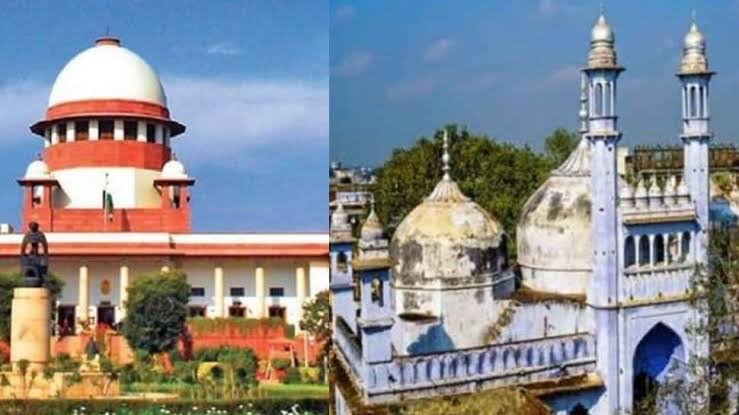


The Muslim side in the Gyanvapi case raised questions before the Allahabad High Court on Wednesday regarding the nexus between the State of Uttar Pradesh and the Hindu parties involved in the case. Senior Advocate SFA Naqvi, appearing before Justice Rohit Ranjan Agarwal, questioned the presence of the State's Advocate General in the courtroom, pointing out that the government had not yet been impleaded as a party to the matter. Naqvi emphasized that the allegations made by the Hindu side in the suit were erroneous and questioned why the Advocate General was present when the State government was not officially involved in the case. However, Justice Agarwal clarified that the Advocate General was only present to assist and not as a party to the case.Earlier in the hearing, the Court had suggested that the State be impleaded as a party to the suit, indicating that it was a proper party. The Court sought the State's stand on the matter, particularly regarding its actions in 1993. However, the Advocate General requested time to obtain instructions before providing a response.The plea before the High Court was filed by the Anjuman Intezamia Masjid Committee challenging a district court order permitting Hindu prayers in the southern cellar of the Gyanvapi Mosque. This order was issued amidst an ongoing civil court case concerning conflicting claims over the religious character of the Gyanvapi compound. The Hindu side claimed that Hindu prayers were historically offered in the mosque's cellar until 1993, while the Muslim side argued against this claim, asserting Muslim possession over the mosque's building.During the proceedings, the Court expressed doubts about the relevance of a 1942 judgment in Din Mohammad v. Secretary of State cited by the Muslim side. The Court indicated that the judgment did not decisively support either party's claims and suggested that the matter would likely hinge on possession of the disputed site in 1993.Advocate Hari Shankar Jain, representing the Hindu side, argued against impleading the State as a necessary party to the case, contending that the trust board had the primary obligation. Jain reiterated the claim that Hindu prayers had been offered in the cellar in the past and criticized the Muslim side for not specifically denying this aspect.In response, Senior Advocate Naqvi continued to challenge the correctness of the January 31 order, arguing that it was passed without a fresh application and amounted to allowing part of the suit through an interim order. However, the Court pointed out that the order was passed using the court's inherent powers under the Code of Civil Procedure, allowing correction of errors or omissions in orders.Naqvi highlighted that the January 31 order was issued without any application or suo motu action, making it illegal in his view. He expressed concern about the implications of the order and its impact on the city of Varanasi.
TAGS: Allahabad High Court Uttar Pradesh Advocate General Hindu parties Muslim side civil court religious character Gyanvapi Mosque cellar possession 1993 Anjuman Intezamia Masjid Committee district court order